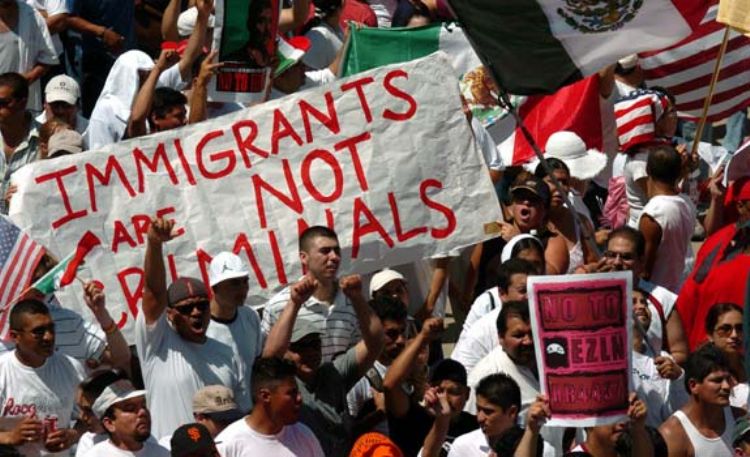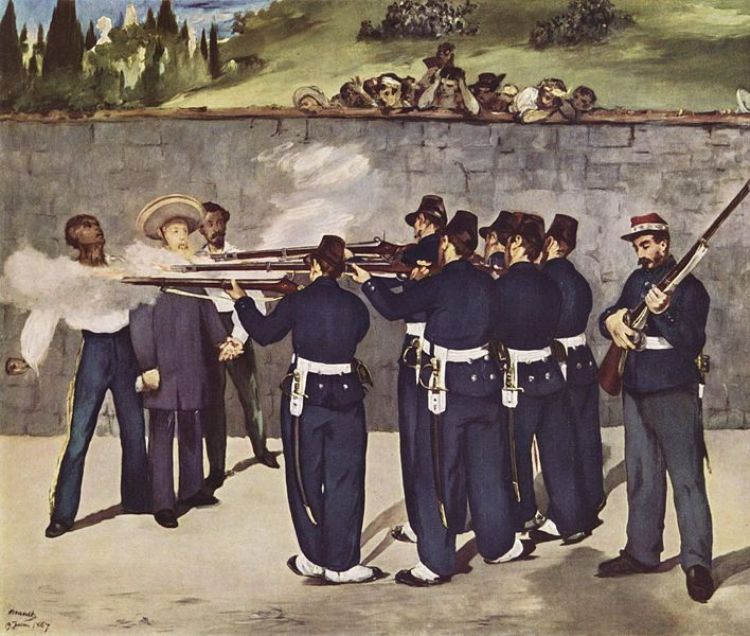The âArizona SB1070â

There are actually a few things which went unsaid about the implementation of this law in the neighbor State and, although it has received much criticism and scorn, few of us have thoroughly and consciously examined the aspects or paragraphs included in this legislation. To avoid giving uninformed opinions, we will summarize the content thereof:
Background:
We must take into account certain factors before adopting a favorable or unfavorable position regarding said legislation, some of them are the following:
a) The legislation deals with the search of ILLEGAL immigrants in the United States.
b) As from September 11, the United States have been somehow defenseless and suspicious with respect to the other Nations, which has led the country into seeking ways of ensuring its security.
c) The State of Arizona, which shares a border with Sonora and a small fringe with Baja California, provides shelter to almost a half million illegal immigrants, who are mostly fellow countrymen and women.
d) Undoubtedly, politicians are taking advantage of this law, by increasing the popularity of those who claim being for, or against this legislation, among its public.
The law and its paragraphs:
1.-The original name of the law is: âSupport Our Law Enforcement and Safe Neighborhoods Actâ. According to the Arizona SB1070, the intention of the law (in line with its text) is to stop and discourage the illegal presence of foreigners entering the American territory.
2.-It is stated that nobody, whether an institution or private person, may detain or restrict the laws on federal immigration.
3.-This is the aspect that has arisen more suspicions, criticism and adverse opinions, as it sets forth the following: Any State authority making contact with a person SUSPECT of being an ILLEGAL foreigner in the country, must and may question the migration status of the suspect, except if such questioning hinders any police investigation. The migratory status of the suspect will be verified with the federal government, pursuant to section eight, 1373 of the U.S. Code.
Neither the race, nor the color of the skin or the nationality should be considered, except to such extent as permitted by the Constitution. Suspect may not be considered illegal if he/she submits any of the following documents: A driving license from the State, or an official ID granted by the federal authorities.
4.-If the legal status of the suspect cannot be proved, migration authorities must be duly notified.
5.-The enforcement officer may arrest the person whose legal status failed to be duly proved.
6.-The authorities must share the information on the purported suspects in the State.
7.-Similarly, it is established that any person or institution hiring people whose migratory status is uncertain or knowingly illegal will also be violating the law. Furthermore, it is provided that such business activities and people therein found could be verified, as well as the legal consequences they are likely to face if they breach the provisions of the foregoing sections.
Grounds:
The attacks on the law were grounded on the fact that the approaches to categorize somebody as suspect of being illegal are uncertain and based upon appearance, making the approaches discriminatory (obviously, Hispanics would be the main target). One of the basic principles of the U.S. Constitution states that men were equally created and, therefore, no distinction or preference amongst them should exist.
Another aspect upheld by those protesting against the law is that the U.S. has a hypocrite attitude towards immigrants, that is, they are not recognized as part of the country and are rejected to a certain extent, but the manpower provided by illegal people is accepted as a matter of vital importance.
Actors:
The law was planned to be fully applied as from July 29th, 2010; however, exactly one day before, Judge Susan Bolton ordered to have the controversial clauses suspended until a further debate was conducted.
The State Governor Jan Brewer, who had signed the law on April 23rd this year, is among its main upholders. Actually, the law was approved by more than 60 percent of the voters when it was subjected to the voting process, and this is an aspect that the Republicans plan to take advantage of, during the next elections.
On the other hand, the Presidents of both countries, Barack Obama and Felipe Calderón, expressed their rejection to the law in their speeches, while human rights upholders from both countries have claimed that the law is racist-based, and there are quite a few Mexican intellectuals and media that consider it to be in the vicinity of Nazism. The Democrats have defended their opinions against the law and, as a consequence thereof, continue discussing any amendments to the SB1070.
It is worth noting the business boycott against the State of Arizona provoked by all those opposing the âArizona Lawâ. On account thereof, many trips, conventions and State visits have been canceled and tourism has been badly stricken. Furthermore, the business activity in Arizona has been adversely affected because there is some kind of rejection to whatever comes from the Grand Canyon, and the products indigenous thereto have become stagnant.
Notwithstanding the above mentioned, there are already several States assessing the possibility of implementing a law similar to the SB1070, as neither of the two Governments can find a solution to the migration issue by themselves.
Artículo Producido por el Equipo Editorial Explorando México.
Copyright Explorando México, Todos los Derechos Reservados.






